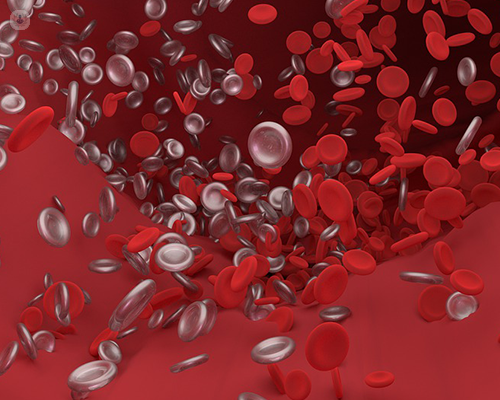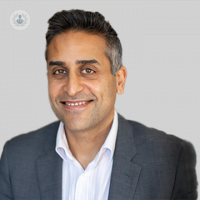Chronic lymphocytic leukaemia: an all-you-need-to-know guide
Written by:Chronic lymphocytic leukaemia is one of the most common types of leukaemia, which despite its slow growing and often asymptomatic nature, can be quite worrying. Experienced haematologist, Dr Jaimal Kothari shares his expertise on the topic.

How is chronic lymphocytic leukaemia diagnosed?
CLL is a blood leukaemia that is often diagnosed completely by chance, usually because a patient has a blood test for a completely different reason and the GP notices that the white blood cell count is a little bit high.
Lymphocytes are a type of white blood cell which are very important in our immune system. With CLL, these cells malfunction and begin to multiply in a malignant way. This is often noticeable in a blood count, but is usually extremely slow moving and can be asymptomatic for many years. Nowadays, as people are living longer, we're increasingly diagnosing CLL and people are often living with it without needing any treatment.
We diagnose it by specifically looking at these abnormal lymphocytes in the blood and doing a specialised type of test, which helps us work out whether or not the extra lymphocytes are because of CLL. The reason that this is done is that there are many other causes for a raised white blood cell count. Things such as smoking or even infection can raise the white cell count in a way which looks like CLL.
Can CLL be cured?
CLL in the majority of people is something that we can control, but not cure. However, there are many people that never need treatment. When treatment is required, it's because the CLL has progressed to a level where it's starting to affect the body.
What are the effects of CLL?
CLL can affect the blood count and cause anaemia, which can lead to fatigue, shortness of breath, and lots of other non-specific symptoms. CLL cells also grow inside lymph nodes, the glands that we all have, which act as a transport system for our white cells and help fight infection. Some patients with CLL notice enlarged lymph nodes, which can be in the neck, under the armpits, and the groin. These are the glands that we can feel, but there are also glands on the inside of the body that can't be felt, which can also enlarge, as can the spleen.
As the amount of CLL in the body builds up, people can feel fatigued or tired. They can also get night sweats, and generally feel non-specifically unwell.
How is CLL treated?
There are many patients who don't need treatment for CLL. These patients are watched with their blood checked every few months or so, which is called watch and wait or expectant monitoring. There is no evidence that treating these people early makes a difference to their overall outcome.
If treatment is required, the good news is that CLL is extremely treatable and people are able to live with it for decades, even those who need treatment. This is because there has been a huge increase in the number of drugs available. Many of these can be taken and have a very good side effect profile. It is a highly treatable condition. It's easy to diagnose and it’s important to remember that for many people, they will not need treatment for many years, if ever.
Dr Jaimal Kothari is a consultant haematologist with over 15 years experience. You can request an appointment with him by visiting his Top Doctors profile today.


